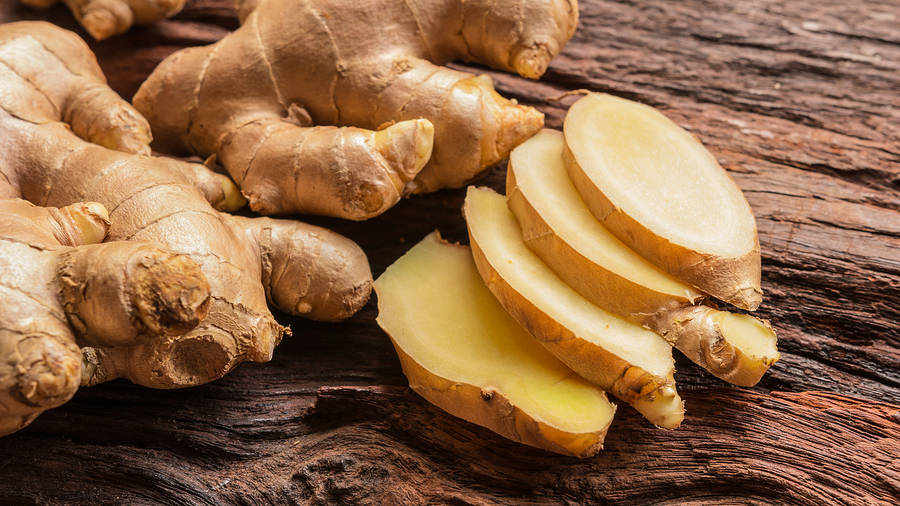An Asian spice, well-known for its sweet and zesty zing, ginger has been shown to reduce pain and inflammation and support digestion. As a digestive aid, this knobby, horn-shaped root is used to nourish and warm the digestive organs, including the mouth, stomach, pancreas, and liver. Ginger stimulates production of enzymes in all digestive pathways.
Research indicates that biologically active compounds in ginger bind to receptors in the digestive tract. This process seems instrumental for minimizing the sensations that create nausea and indigestion. Researchers also note that ginger plays a role in the breakdown of starches and fatty food – all good things when your tummy has gone sour.
There are many preparations of ginger that kids, as well as adults, can enjoy and use when experiencing an upset stomach. This includes ginger chews, lozenges, and fresh or dried tea infusions. Tinctures, capsules, and extracts can be prepared in varying strengths based upon individual medicinal needs, determined through consultation with a holistic physician.
Resources
Mars, B. & Fiedler, C. Home Reference Guide to Holistic Health & Healing. (2015) p.186. Beverly, MA: Fair Winds Press.
Johnson, R.L., S. Foster, Low Dog, T. and Kiefer, D. National Geographic Guide to Medicinal Herbs: The World’s Most Effective Healing Plants.(2012) p.140; 158-160. Washington, D.C.: National Geographic.
WorldsHealthiestFoods.com “Ginger” Accessed 8 Aug 2019: http://www.whfoods.com/genpage.php?tname=foodspice&dbid=72
Hoffmann, D. Medicinal Herbalism. The Science and Practice of Herbal Medicine.Rochester, Healing Art Press 2003. http://www.pdfarchive.info/pdf/H/Ho/Hoffmann_David_-_Medical_herbalism.pdf
“Ginger root supplement reduced colon inflammation markers.” University of Michigan Health System, 11 October 2011. http://www.uofmhealth.org/news/ginger-cancer-1011

